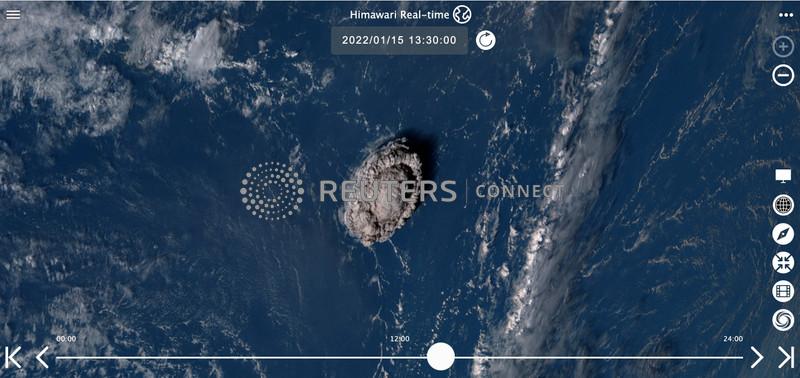In the aftermath of the massive volcanic eruption in Tonga on Saturday, we have been inundated with advice and safety tips. Understandably, there may be some of us who will wonder why when we are hundreds of kilometres from the Hunga Tonga-Hunga-Ha’apai volcano.
The BBC reported at the time of the eruption: The US and Japan had advised people on their Pacific coastlines to get away from the shore as a precaution against tsunami waves caused by the volcano eruption.
The eruption, it said, was heard across the South Pacific and, eventually, as far away as the US. In New Zealand, it said, which is more than 2300km away from Tonga, the National Emergency Management Agency said coastal areas on the north and east coast of the North Island saw “strong and unusual currents and unpredictable surges at the shore”.
Local forecaster Weather Watch, it said, tweeted about the eruption: “The energy release is simply astonishing”, adding: “Reports of people hearing the sonic booms across New Zealand.”
In the face of all this, we are reminded about our own predicament in the wake of the eruption as heavy clouds hang over parts of Fiji. We are reminded about safety tips that have been given to us by the powers that be, and hope every Fijian is adhering to them.
In an advisory on Monday, the Department of Environment stated it had continually monitored the air quality in Fiji following the volcanic eruption in Tonga over the weekend. It said, based on the satellite image data, the Department confirmed that the Sulphur Dioxide (SO2) concentration in the atmosphere had increased overnight which could result in acidic rainfall over the Fiji Group.
It advised members of the public to cover all household water tanks and stay indoors in the event of rain due to the risk of acid rain.
In a report by Reuters yesterday, it stated that since the initial eruption, the volcano has been releasing sulfur dioxide and nitrogen oxide — two gases that create acid rain when they interact with water and oxygen in the atmosphere. It quoted volcanologist Shane Cronin at the University of Auckland saying that with Tonga’s tropical climate, “there is likely to be acid rain around Tonga for a while to come”.
Acid rain, it reported, causes, widespread crop damage, and could ruin Tongan staples like taro, corn, bananas and garden vegetables.
“Depending on how long the eruptions last, food security could be compromised,” Cronin was quoted saying. Reuters reported that satellite imagery showed the plume spreading westward, which meant Tonga could be spared some of this acid rain though Fiji could then be in its path. We are reminded about our roles at this time.
We have been warned. Our challenge now is to adhere to safety advice. Let’s not take this lightly.
We remember the people of Tonga, and hope assistance reaches them as soon as possible.
We hope and pray for their safety and wellbeing.





